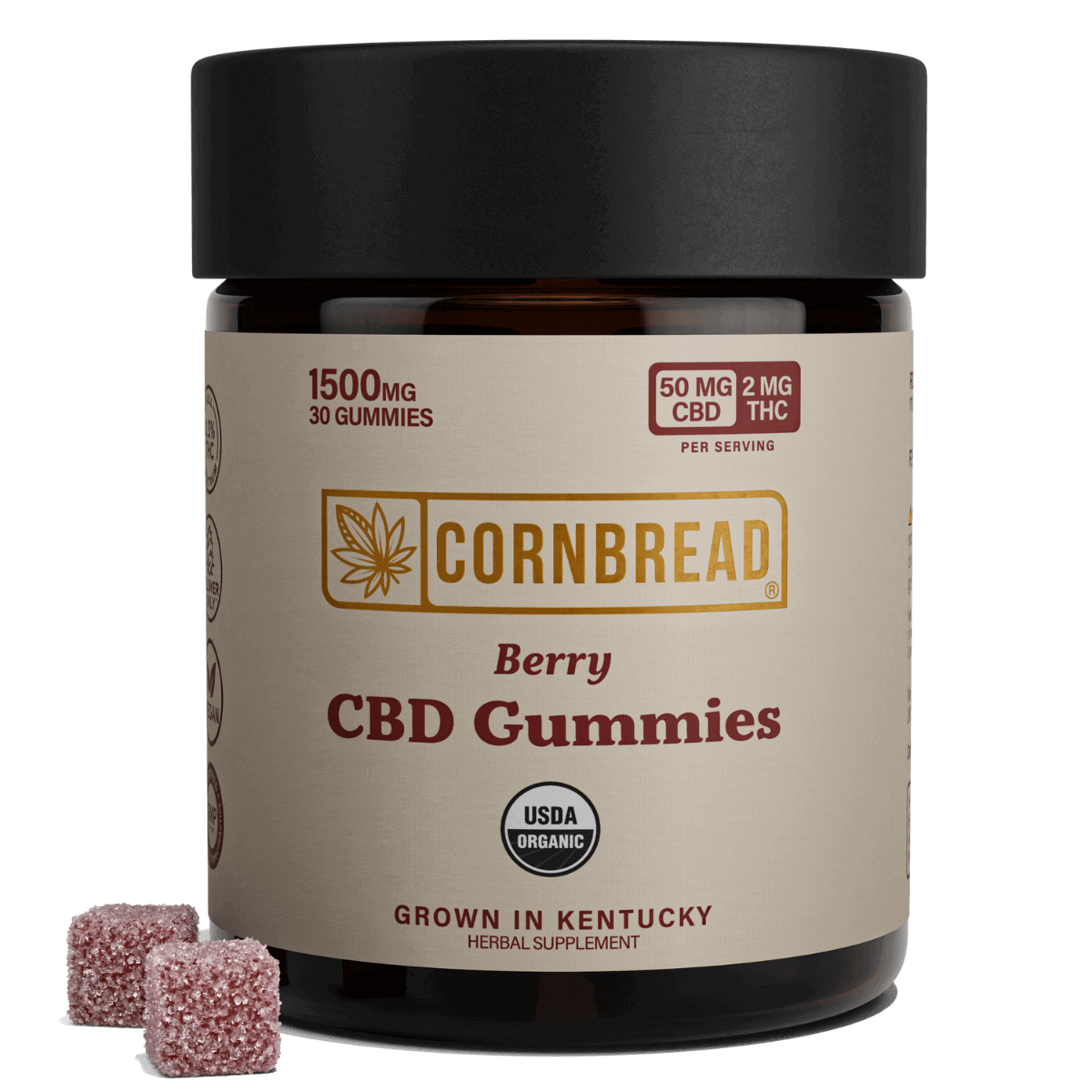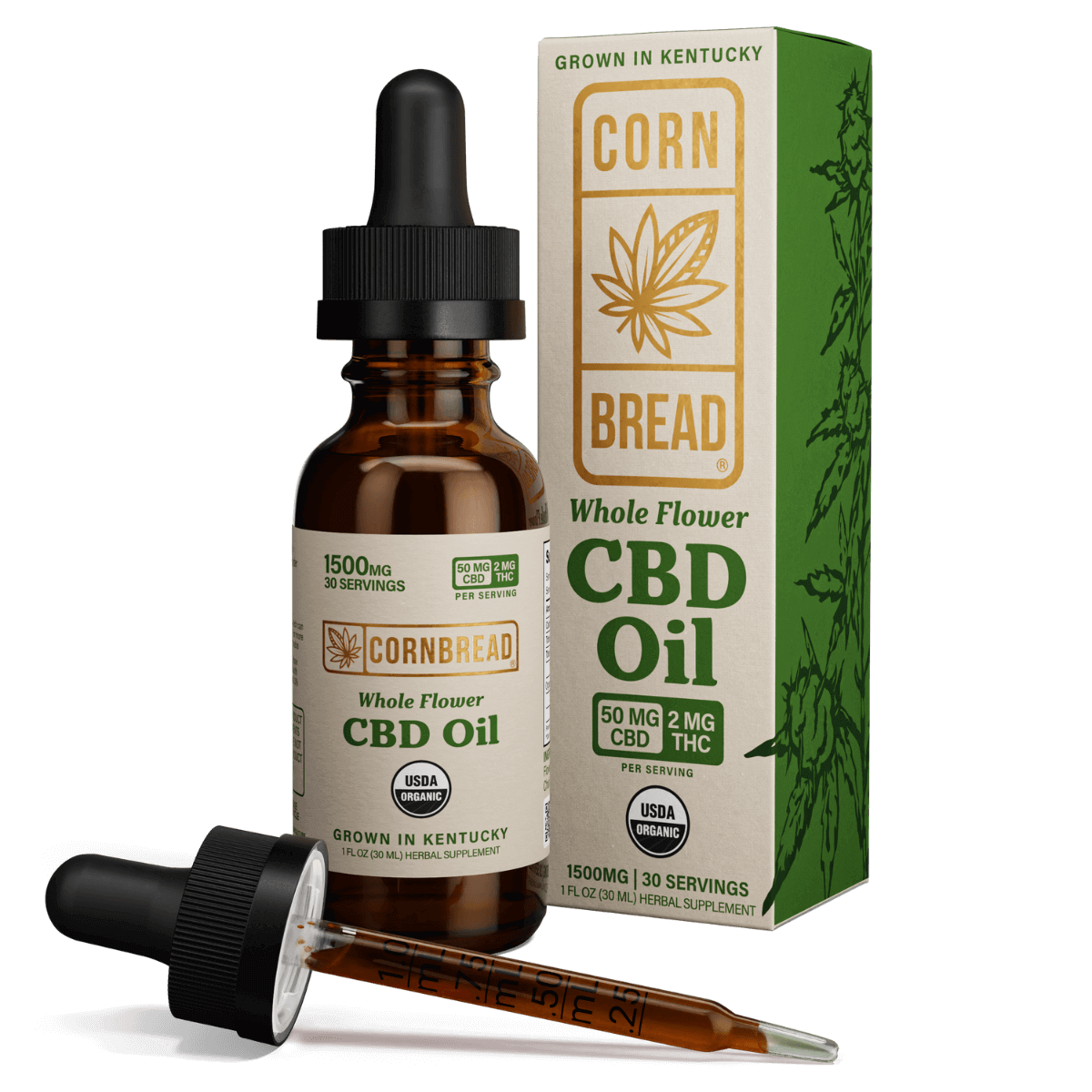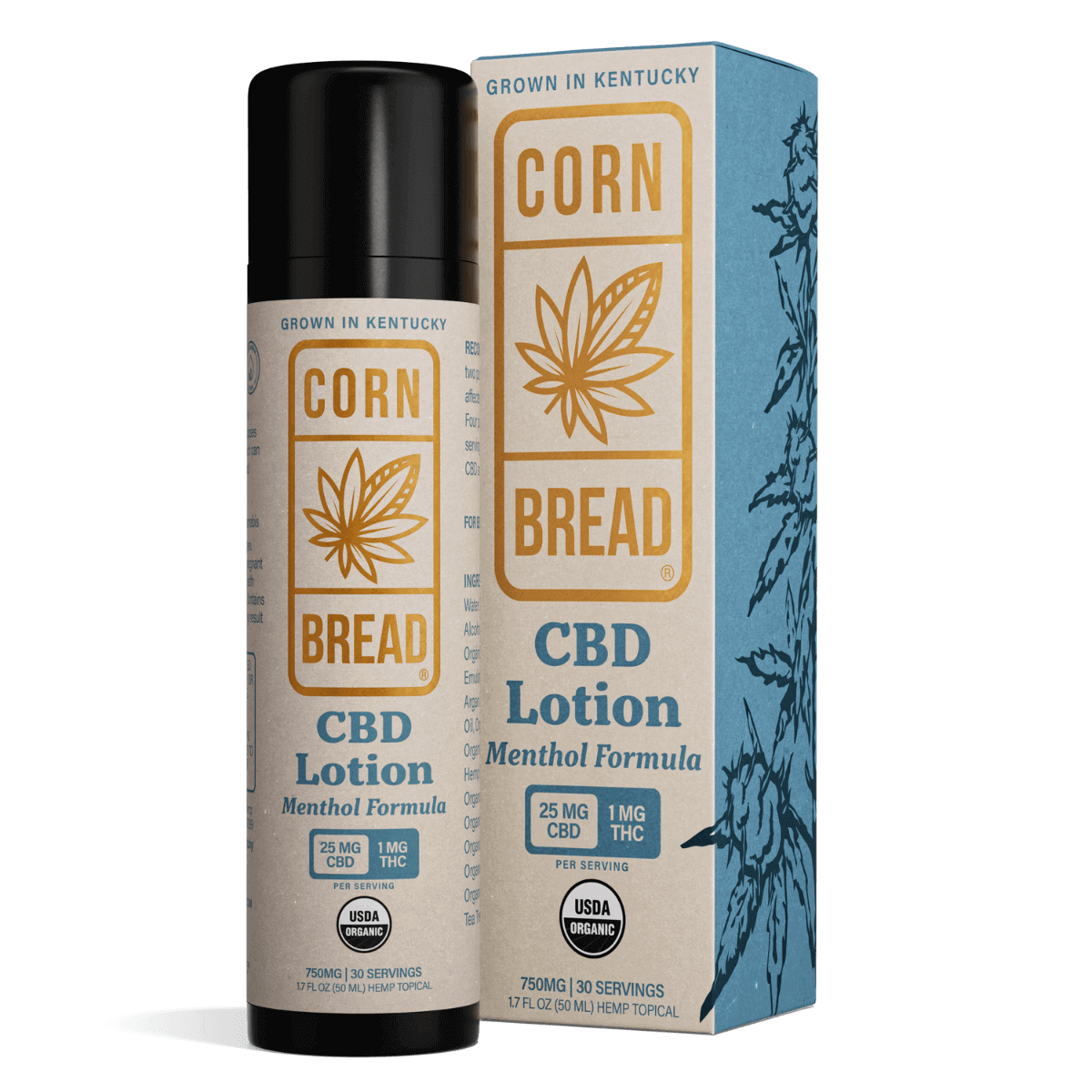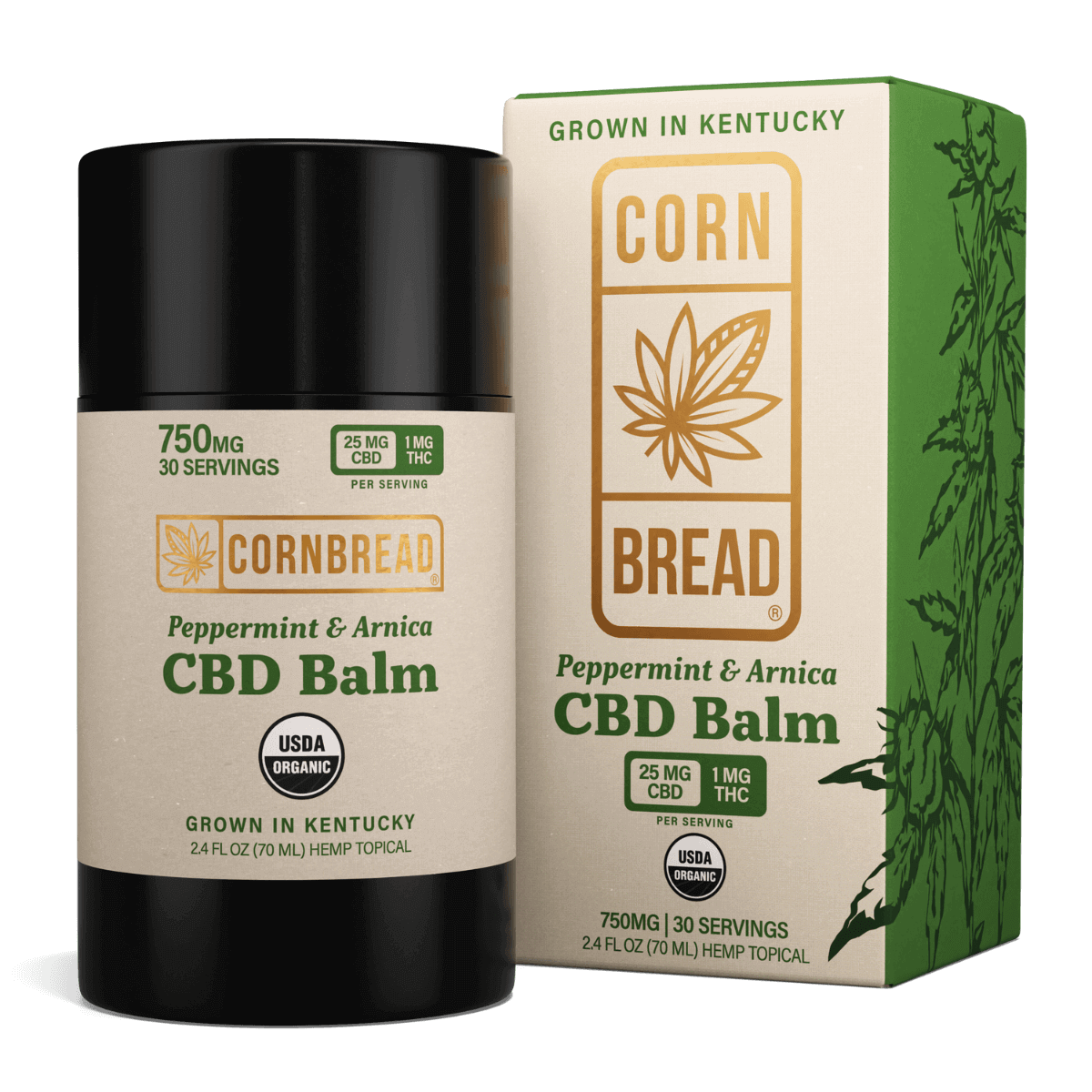Table of Contents
- INTRODUCTION
- OUR BODIES RESPOND TO CBD
- HEMP IS DIFFERENT THAN MARIJUANA
- CBD OIL IS NOT THE SAME AS HEMP OIL
- CBD DOES NOT GET YOU HIGH
- CBD HAS A TRICKY LEGAL STATUS
- THE FDA DOES NOT REGULATE CBD, YET
- CBD IS SAFE IF PURCHASED FROM A RELIABLE SOURCE
- USDA CERTIFIED ORGANIC CBD OIL IS THE SAFEST
- THE BEST CBD COMPANIES PROVIDE FULL LAB REPORTS
- CBD COMES IN MANY FORMS
- YOU CAN GIVE CBD TO YOUR PETS
- THE BEST HEMP COMES FROM KENTUCKY
- LOOKING FOR MORE CBD FACTS TO LEARN?
Introduction
Learning about cannabidiol (CBD) can be confusing, but Cornbread Hemp is here to help break down the basics.
Hemp-derived CBD products are flooding health markets all across the US. Like any new craze, there’s plenty of misunderstanding, half-truths, and downright lies being spread about CBD on a daily basis just about everywhere. How can you know for sure what you’re hearing is true? Here are 12 CBD facts that everyone should know when learning about CBD.
1. Our Bodies Respond to CBD
In 1992, scientists used research about compounds found in the cannabis plant, known as cannabinoids, to discover a previously unknown system in the human body. This cell-signaling system overlays the nervous system of all mammals. Scientists call it the endocannabinoid system, or ECS.
THC and CBD respond differently to the ECS because they bond to different types of cannabinoid receptors. THC tends to bind to CB1 receptors in the brain, while CBD bonds with CB2 receptors elsewhere in the body. This is why THC makes people high, whereas CBD affects body health.
The ECS helps the body maintain homeostasis, or balance, by regulating many body functions. The effect produced by all of the cannabinoids working together on the ECS is called the "entourage effect." This effect allows the ECS to work at maximum capacity. So be sure to choose a full spectrum CBD oil to gain the full benefits from the plant!
2. Hemp is Different Than Marijuana
Most CBD oil on the market today comes from strains of "industrial" hemp plants that have very low levels of the intoxicating compound THC, and very high levels of the beneficial compound CBD. Federal law defines these cannabis strains as “hemp” due to their low THC content. CBD companies source their products with hemp containing a legal trace amount of THC, which is no more than 0.3 percent.
On the other hand, the term “marijuana” is generally regarded as the term for strains of cannabis high in THC that are for medical or recreational use. Marijuana is legal in two-thirds of the United States under state law but not yet legal under federal law. Dispensaries in legal marijuana states often sell CBD products, or products with a high ratio of CBD-to-THC, derived from marijuana. But at Cornbread Hemp we always use federally legal hemp for our products.
3. CBD Oil is Not the Same as Hemp Oil
All CBD oil comes from hemp oil, but not all hemp oil contains CBD. This can be confusing. It makes it more confusing when some companies use the terms interchangeably.
When referring to CBD oil and hemp oil you want to make sure you are getting the correct product. Hemp oil can refer to hemp seed oil, which is derived from seeds that contain no CBD whatsoever. It is basically a healthy cooking oil.
CBD oil refers to a potent hemp cannabis extract that is then mixed with a carrier oil. This is what people are usually looking for when shopping for a wellness product.
4. CBD Does Not Get You High
CBD is a non psychoactive compound. The receptors that respond to CBD are mostly in our bodies, not our brains. Therefore, CBD does not produce an intoxicating effect like THC rich marijuana products. Legal CBD products contain no more than 0.3 percent THC, not nearly enough to give you a buzz.
The trace amounts of THC can potentially help the CBD compounds work better with the body’s ECS because of the entourage effect. Using full spectrum CBD oil allows people to enjoy the reported health benefits of cannabis without getting high. However if your workplace requires drug tests, it's a good idea to stay away from any kind of cannabis product. Even THC free products have the potential to flag hot on a drug test!
5. CBD Has a Tricky Legal Status
The Farm Bill of 2018 mandates that hemp containing no more than 0.3 percent THC may be cultivated nationwide. This led to a flood of companies manufacturing products made from legal hemp.
However, not all state laws are created equal. CBD is perfectly legal in most states, but some states still consider it to be contraband. We encourage people to check state laws before traveling to that state in possession of CBD products. Hemp products are still in the legal gray area for some states. And you may be surprised by which states keep hemp banned and which states embrace hemp. Good rule of thumb when traveling across state lines with any hemp derived product is to check before you go.
6. The FDA Does Not Regulate CBD, Yet
Since the CBD industry is so new, the hemp market is saturated with new companies making CBD products. Consumers need to be careful when purchasing CBD oil since there are currently no regulations in place to ensure that they are getting a safe CBD product.
Currently, federal law only requires that a CBD brand test its products for THC. That means that unscrupulous companies can sell products containing harmful materials, like pesticides, heavy metals, and solvents. When purchasing CBD, smart consumers should look for certificates of authenticity (COA) from a third party to verify the safety of the product.
7. CBD is Safe if Purchased from a Reliable Source
No one has ever reportedly died or overdosed from CBD oil. Because CBD has few if any side effects, it is perfect for everyone to experience the purported health benefits of cannabis. If you are taking medications for any health conditions, then you will want to check with your doctor before trying CBD oil. CBD may make some prescription medications work better, which could amplify the side effects of the medication.
Even though CBD is regarded as safe for most anyone to take, consumers should be aware of other contaminants that may be lurking in their products. There have been some scary situations caused by bad CBD products laced with synthetic cannabinoids. That is why buying certified organic CBD oils that have third party COAs is the best way to ensure you are purchasing a safe CBD oil.
8. USDA Certified Organic CBD Oil is the Safest
For CBD oil to be sold, the federal government only requires THC potency tests. The FDA has yet to issue proper regulations on CBD production. Therefore, a lot of companies sneak low quality CBD products onto the shelf that may be unsafe for consumers.
The only way to ensure against this is by looking for CBD products with the USDA organic seal. Products carrying this seal are manufactured with an organic process that guarantees the final product will be free of pesticides and other harmful contaminants.
9. The Best CBD Companies Provide Full Lab Reports
In addition to looking for a USDA certified organic label, consumers should research further to ensure that the products they buy are safe. Third party lab reports are important because that means the product was tested in a facility that is monetarily unaffiliated with the CBD company, so you can trust that the reports were not altered or tampered with in any way.
Cornbread Hemp puts scannable QR codes on all their products that lead directly to easy-to-read third party lab reports. In addition to potency tests, visitors will find a full safety check analyses detailing tests for residual solvents, microbial contaminants, heavy metals, and pesticides.
10. CBD Comes in Many Forms
CBD cannabis products come in a variety of forms. The most common way for people to take CBD is by taking a dropperful of CBD oil under the tongue. CBD can also come in capsules, or in an edible form like gummies. It can be found in tea and coffee blends and jars of honey. There are CBD treats for your pets and even candy bars for you!
CBD can be made into topical lotions, creams, CBD balms, shampoos, and bath bombs. You can find CBD vape juice, and even smokable hemp flower. No matter what a person’s needs are there is a form of CBD that is perfect for them!
11. You Can Give CBD to Your Pets
All animals have an endocannabinoid system. This means that dogs and cats can also take CBD oil and gain the same benefits as we do! Cornbread Hemp has a corn dog flavored oil that is perfect for furry companions to enjoy. In fact, most cannabinoid research has been gathered from animal studies, a huge case against the possibility of placebo effect.
12. The Best Hemp Comes from Kentucky
Kentucky lies on the Earth’s 37th parallel, the same latitude line that crosses the Hindu Kush mountains on the other side of the world. This area is the birthplace of the Indica cannabis strains. They thrive in the light cycles found at that latitude.
The Bluegrass State shares these light cycles in addition to a perfect climate, fertile soil, and limestone-filtered water that is needed to produce the best hemp in the nation. Cornbread Hemp is a family owned CBD company in Louisville. They work with organic Kentucky farms to grow cannabis strains with high CBD concentrations and produce the highest quality organic CBD oil in the Midwest and upper South.
Looking for More CBD Facts to Learn?
There are still many cannabidiol (CBD) facts out there for people interested in this intriguing area of study. Scientists are publishing research on cannabis plant compounds on a nearly daily basis. There are many more amazing properties of this remarkable plant yet to be discovered that may revolutionize our health and well being, so keep up to date on CBD facts!










 Log in
Log in























